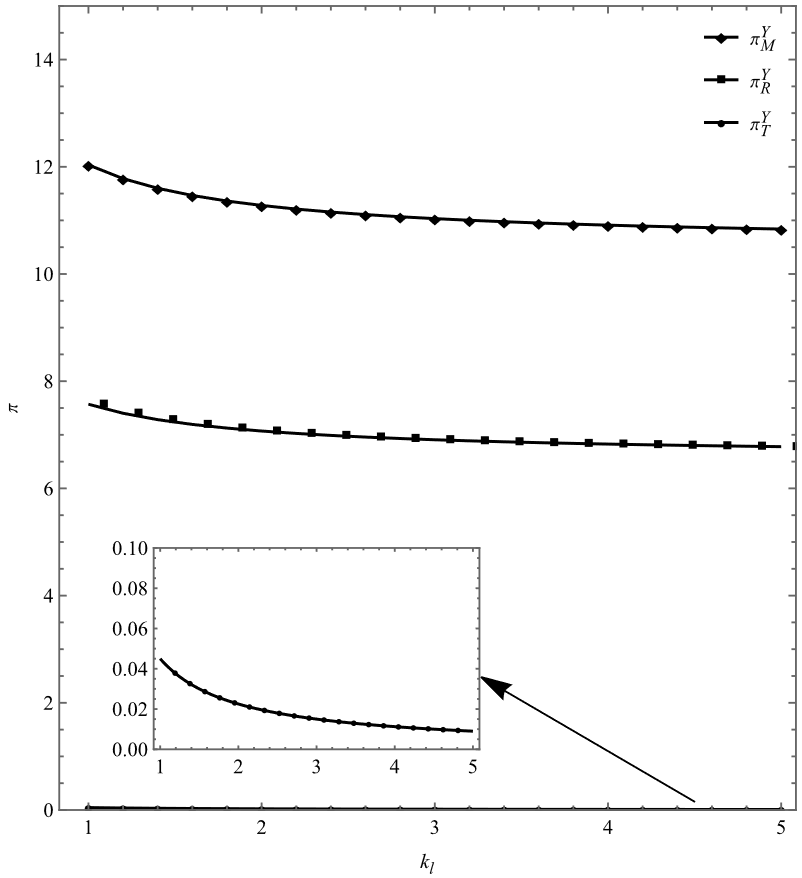Strategic Research on Block Chain-Embedded Low-Carbon Closed-Loop Supply Chain
Keywords:
blockchain, low-carbon emission reduction, closed-loop chain, differential gameAbstract
Given the increasing low-carbon awareness among consumers, this study develops a differential game model involving a manufacturer, a retailer, and a blockchain technology service provider to explore low-carbon Closed-Loop Supply Chain (CLSC). By comparing two scenarios in which manufacturers either adopt or refrain from adopting blockchain technology, we examine how its integration influences decision-making, performance, and low-carbon outcome across the supply chain. Analysis and Numerical simulations validate the findings and reveal key insights are as follows: (1) Product pricing, market demand, low-carbon promotional effort, return rate, and overall low-carbon performance are positively correlated with market scale and increase proportionately with consumer environmental consciousness, irrespective of blockchain adoption. (2) Increasing consumer environmental awareness and blockchain service commission rate are found to significantly enhance product pricing, market demand, investment in low-carbon effort, recycling efficiency, overall sustainability level, and the profitability of supply chain members. (3) The low-carbon level exhibits an increasing trend over time and eventually converges to a steady state. (4) As the discount rate increases, firms’ incentives for low-carbon investment decline, leading to lower profits. (5) The impact of the low-carbon decay coefficient on profit shows a rise-then-fall pattern, with profits initially increasing and then decreasing, while the rate of decline becomes more gradual at higher decay levels. Through full life-cycle carbon emission monitoring, blockchain technology enhances consumer surplus and can accelerate the achievement of the “dual-carbon” goals. This study provides theoretical support for the application conditions of block chain technology, the dynamic optimization pathways, and policy design within CLSC, thereby contributing to enterprises' low-carbon transitions and the development of circular resource systems.
References
L. Yang, Y. Hu and L. Huang, "Collecting mode selection in a remanufacturing supply chain under cap-and-trade regulation," European Journal of Operational Research, vol. 287, pp. 480-496, 2020.
P. De Giovanni and G. Zaccour, "A selective survey of game-theoretic models of closed-loop supply chains," Annals of Operations Research, vol. 314, pp. 77-116, 2022.
J. Wei, W. Y. Chen and G. X. Liu, "How manufacturer's integration strategies affect closed-loop supply chain performance," International Journal of Production Research, vol. 59, pp. 4287-4305, 2021.
Z. Zhang and L. Yu, "Altruistic mode selection and coordination in a low-carbon closed-loop supply chain under the government's compound subsidy: A differential game analysis," Journal of Cleaner Production, vol. 366, p. 132863, 2022.
M. Y. Gao, L. X. Xia, Q. Z. Xiao, and M. Goh, "Incentive strategies for low-carbon supply chains with information updating of customer preferences," Journal of Cleaner Production, vol. 410, 2023.
S. Li, S. J. Qu, M. Wahab, and Y. Ji, "Low-Carbon supply chain optimisation with carbon emission reduction level and warranty period: nash bargaining fairness concern," International Journal of Production Research, vol. 62, pp. 6665-6687, 2024.
R. L. Luo, L. Zhou, Y. Song, and T. J. Fan, "Evaluating the impact of carbon tax policy on manufacturing and remanufacturing decisions in a closed-loop supply chain," International Journal of Production Economics, vol. 245, 2022.
J. Chod, N. Trichakis, G. Tsoukalas, H. Aspegren, and M. Weber, "On the Financing Benefits of Supply Chain Transparency and Blockchain Adoption," Management Science, vol. 66, pp. 4378-4396, 2020.
D. Ma and J. Hu, "The optimal combination between blockchain and sales format in an internet platform-based closed-loop supply chain," International Journal of Production Economics, vol. 254, p. 108633, 2022.
J. Jia, W. Chen, Z. Wang, L. Shi, and S. Fu, "Blockchain’s role in operation strategy of power battery closed-loop supply chain," Computers & Industrial Engineering, vol. 198, p. 110742, 2024.
Q. Zhang, Y. Li, P. Hou, and J. Wang, "Price signal or blockchain technology? Quality information disclosure in dual-channel supply chains," European Journal of Operational Research, vol. 316, pp. 126-137, 2024.
B. Shen, C. Dong and S. Minner, "Combating Copycats in the Supply Chain with Permissioned Blockchain Technology," Production and Operations Management, vol. 31, pp. 138-154, 2022.
S. C. Zhang and J. X. Zhang, "Contract preference with stochastic cost learning in a two-period supply chain under asymmetric information," International Journal of Production Economics, vol. 196, pp. 226-247, 2018.


